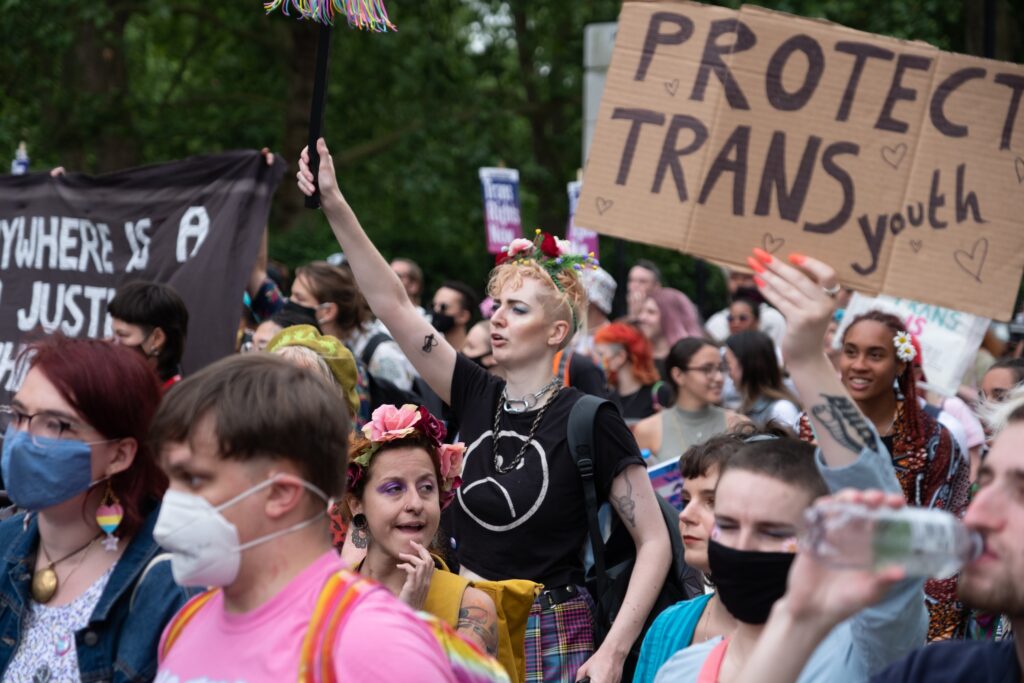LGBTQ+ Travel Risk Assessment for 2023
We as queer people are in a unique position where we constantly have to monitor global events and politics before planning any sort of travel as a matter of our personal safety. To that end, we present to you a global outlook and travel risk assessment for 2023 provided by HX Global.
The security environment for members of the LGBTQ+ community has generally improved in 2022. However, employees that identify as LGBTQ+ will continue to face unique challenges during international travel or long-term deployments.
Countries and territories around the world continue to approach legislation relating to LGBTQ+ activity differently. Positions range from full equal rights and protections against discrimination to the death penalty for same-sex relations. Discrimination against LGBTQ+ people creates severe challenges for talent mobility, retention, and development.

Same-Sex Marriage
There are currently 34 countries in which same-sex marriage is recognized. Discussions pertaining to the recognition of same-sex marriage are ongoing in the Czech Republic, Greece, Israel, India, Liechtenstein, the Philippines, and Thailand.
Over the course of the past year, significant developments were seen across the world as same-sex marriages became legalized and/or recognized in Chile, Switzerland, Cuba, and Andorra. In October, Slovenia became the first post-Soviet republic to recognize same-sex marriages and adoption rights for same-sex couples. Tamaulipas became the last of Mexico’s states to authorize same sex-unions. Most recently, Tokyo’s metropolitan government began issuing partnership certificates to same-sex couples living in Japan’s capital, allowing them to be treated as married couples with respect to housing, health, and welfare.
Conversely, 32 countries and four jurisdictions worldwide passed constitutional amendments that explicitly prohibit the legal recognition of same-sex marriage and other forms of legal unions. Guatemala’s Congress passed a law that explicitly banned same-sex marriage, while the Privy Council of the United Kingdom upheld the Caymanian and Bermudan constitutional bans on marriages between same-sex people. Singapore’s Prime Minister announced plans to reform the constitution in order to prevent the legalization of same-sex marriage, which represents a de-facto ban.

Transgender Legislation
Improvements in transgender legislation worldwide have also been reported, with further legislative developments expected in 2023. Countries including Finland, Denmark, and Mexico have implemented legislation to guarantee the right to self-determination of gender without a requirement for surgery or sterilization.
However, controversial decisions regarding elite transgender athletes continue to be criticized by LGBTQ+ organizations. This includes the decision made by the Irish Rugby Football Union to ban transgender women from playing contact rugby and another made by the International Swimming Federation (Fina) to ban transgender women from female competitions. Instead, they suggested the creation of a specific category for transgender athletes.
Conversion therapy has been banned in numerous countries through 2021 and 2022, including Canada, Chile, India, France, Greece, and New Zealand. In the US, Wisconsin, Michigan, Minnesota, and Pennsylvania are the latest states to rule that federal and state funds cannot be allocated to conversion therapy. The ban on conversion therapy approved by the United Kingdom in May does not cover transgender people, a decision heavily criticized by LGBTQ+ associations. Countries in the process of discussing potential bans on conversion therapy include Ireland, Israel, Norway, Denmark, and Finland.

What Can We Expect in 2023?
In 2023, members of the LGBTQ+ community will continue to face unique challenges when it comes to international travel and long-term deployments. LGBTQ+ issues are expected to be a continued source of political polarization around the world. The increasing popularity of far-right political parties in Europe, including the recently elected Brothers of Italy, the Swedish Democratic Party, and the Polish Law and Justice Party underscores the increasing use of homophobic narratives to score political points.
In the US, Republicans in Congress laid the groundwork for an anti-transgender law that would block funding to colleges that allow transgender women to participate in sports with cisgender women and sanction schools that disobey previously issued state laws regarding sharing LGBTQ+ materials with minors. While it is unlikely the bills will become law this year since the Democrats narrowly control both chambers of Congress, the future remains uncertain.
Societal and cultural considerations towards LGBTQ+ issues are likely to remain unchanged in the short-to-medium term. Of the 68 countries that criminalize same-sex relations worldwide, 33 are in Africa. Some progress has been made in recent years, but several nations continue actively enforcing discriminatory laws. Discriminatory attitudes are likely to remain in 2023, with minimal changes to legislation expected.
Many developments can be expected in the Asia Pacific region, including the potential decriminalization of same-sex relations in Sri Lanka and the legalization of same-sex unions in Thailand and India. However, discriminatory policies are likely to remain in countries such as Afghanistan, China, Indonesia, Malaysia, and Pakistan.
The security environment in multiple eastern European, Middle Eastern, and North African countries continues to be assessed as high or extreme for LGBTQ+ individuals.

Ensure Your Organization Has Appropriate Risk Mitigation Measures for LGBTQ+ Travel
It is important that organizations create and foster an open environment for all employees. If employees are comfortable disclosing their sexual orientation and gender identity, travel risk assessments should be customized accordingly and take into consideration the location and purpose of travel. These assessments should also consider the prevailing legal, cultural, logistical, and security risks that members of the LGBTQ+ community are likely to face.
Many employees may not feel comfortable disclosing their sexual orientation. Therefore, it is critical that organizations have LGBTQ+ travel risk mitigation advice readily accessible to all members of the organization. This can include having LGBTQ+ travel resources available to everyone or offer access to a platform like Healix’s LGBTQ+ e-learning modules. This ensures that all members of your workforce can discreetly access information to keep themselves safe.
Issue country-specific guidelines. These guidelines may include items such as advising LGBTQ+ employees to hold business meetings at inconspicuous venues, indicating when large LGBTQ+ events may be staged and what precautions to take, or suggesting ways that LGBTQ+ employees can reduce their profiles. Additionally, monitoring the Healix Sentinel Travel Oracle app can be useful for pre-empting potentially volatile protests.
Ensure that ample legal protections are in place and that employees know how to access these services. As LGBTQ+ employees may face detention, deportation, assault, or imprisonment in some locations, it is advisable to ensure that employees have access to appropriate legal advice and support. Reach out to national embassies and consulates to understand the level of consular support that may be available in the event that it is required.

Travelers can reduce their risk profile by:
- Maintain a low profile at all times – even in locations where society is considered tolerant of homosexuality
- Remain vigilant and ignore provocations. Inform a relevant line manager or HR contact.
- Avoid public displays of affection where possible
- Ensure you exercise discretion when disclosing sexual orientation
- Exercise caution using online LGBTQ+ social media platforms
- Remain aware of the risks associated with LGBTQ+ venues
For further advice or assistance with developing a customized travel plan, please reach out to enquiries@hx-global.com.
About HX Global
HX Global, the U.S. division of Healix International, has been providing assistance and travel risk consultancy solutions to some of the world’s most well-known corporations, governments, and NGOs for over two decades. HX Global’s fully integrated team has the skill and experience to address the myriad risks facing today’s travelers. Its combined medical, travel, and risk management expertise places HX Global in the unique position to deliver comprehensive, cost-effective solutions without compromising high-quality support for the end user. To learn more, please visit https://hx-global.com.



